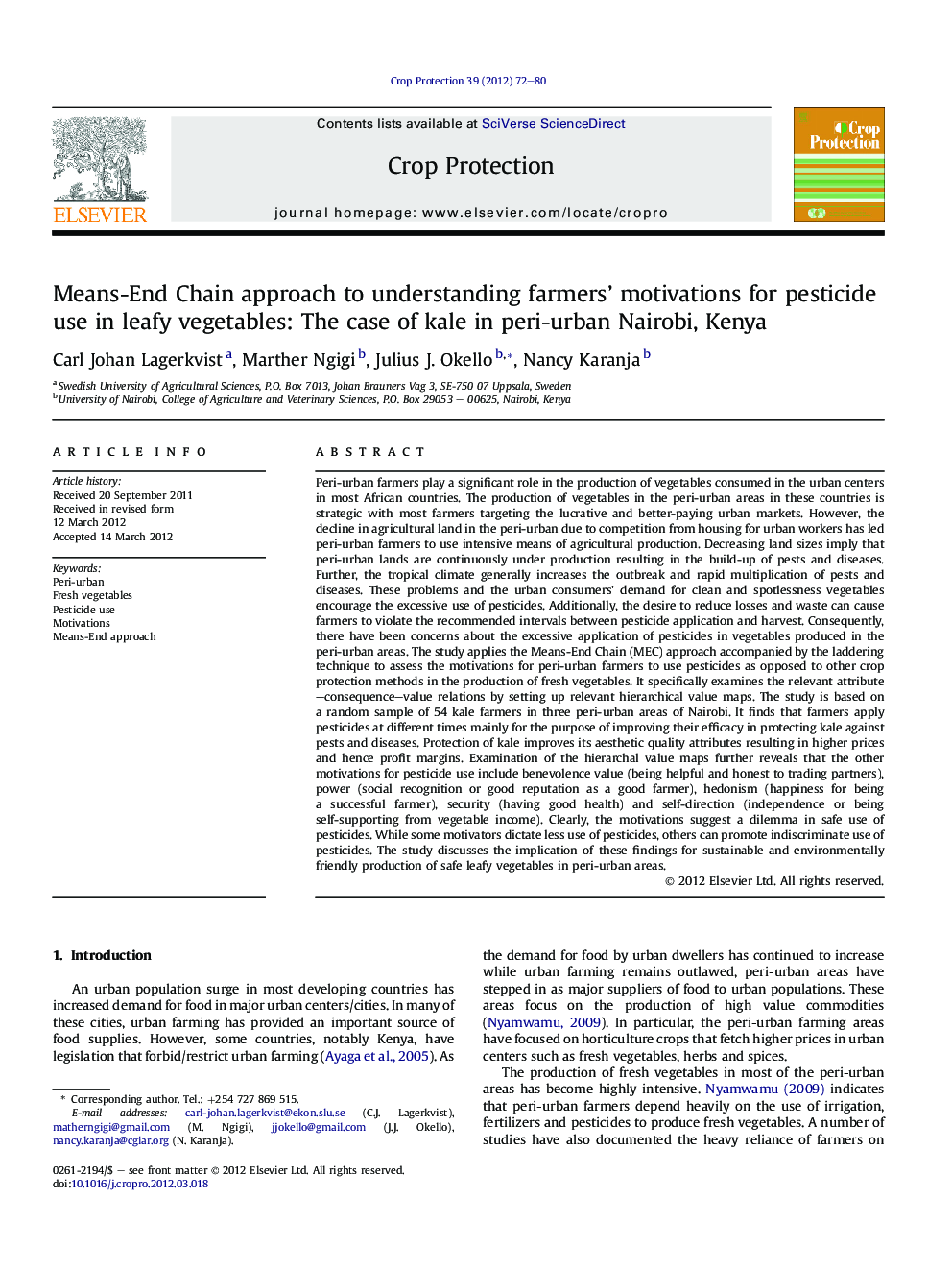| کد مقاله | کد نشریه | سال انتشار | مقاله انگلیسی | نسخه تمام متن |
|---|---|---|---|---|
| 4506381 | 1624348 | 2012 | 9 صفحه PDF | دانلود رایگان |

Peri-urban farmers play a significant role in the production of vegetables consumed in the urban centers in most African countries. The production of vegetables in the peri-urban areas in these countries is strategic with most farmers targeting the lucrative and better-paying urban markets. However, the decline in agricultural land in the peri-urban due to competition from housing for urban workers has led peri-urban farmers to use intensive means of agricultural production. Decreasing land sizes imply that peri-urban lands are continuously under production resulting in the build-up of pests and diseases. Further, the tropical climate generally increases the outbreak and rapid multiplication of pests and diseases. These problems and the urban consumers' demand for clean and spotlessness vegetables encourage the excessive use of pesticides. Additionally, the desire to reduce losses and waste can cause farmers to violate the recommended intervals between pesticide application and harvest. Consequently, there have been concerns about the excessive application of pesticides in vegetables produced in the peri-urban areas. The study applies the Means-End Chain (MEC) approach accompanied by the laddering technique to assess the motivations for peri-urban farmers to use pesticides as opposed to other crop protection methods in the production of fresh vegetables. It specifically examines the relevant attribute–consequence–value relations by setting up relevant hierarchical value maps. The study is based on a random sample of 54 kale farmers in three peri-urban areas of Nairobi. It finds that farmers apply pesticides at different times mainly for the purpose of improving their efficacy in protecting kale against pests and diseases. Protection of kale improves its aesthetic quality attributes resulting in higher prices and hence profit margins. Examination of the hierarchal value maps further reveals that the other motivations for pesticide use include benevolence value (being helpful and honest to trading partners), power (social recognition or good reputation as a good farmer), hedonism (happiness for being a successful farmer), security (having good health) and self-direction (independence or being self-supporting from vegetable income). Clearly, the motivations suggest a dilemma in safe use of pesticides. While some motivators dictate less use of pesticides, others can promote indiscriminate use of pesticides. The study discusses the implication of these findings for sustainable and environmentally friendly production of safe leafy vegetables in peri-urban areas.
► We investigated motivations for pesticide use by peri-urban kale farmers.
► Means-End Chain approach identified set of attributes, consequences and real motives for using pesticides.
► Pesticides are used to increase efficacy and family income and thus meet family needs.
► Post-harvest intervals are observed to promote consumer health.
► There is conflict between the desire to protect kale from pests/diseases and that of promoting consumers' health.
Journal: Crop Protection - Volume 39, September 2012, Pages 72–80